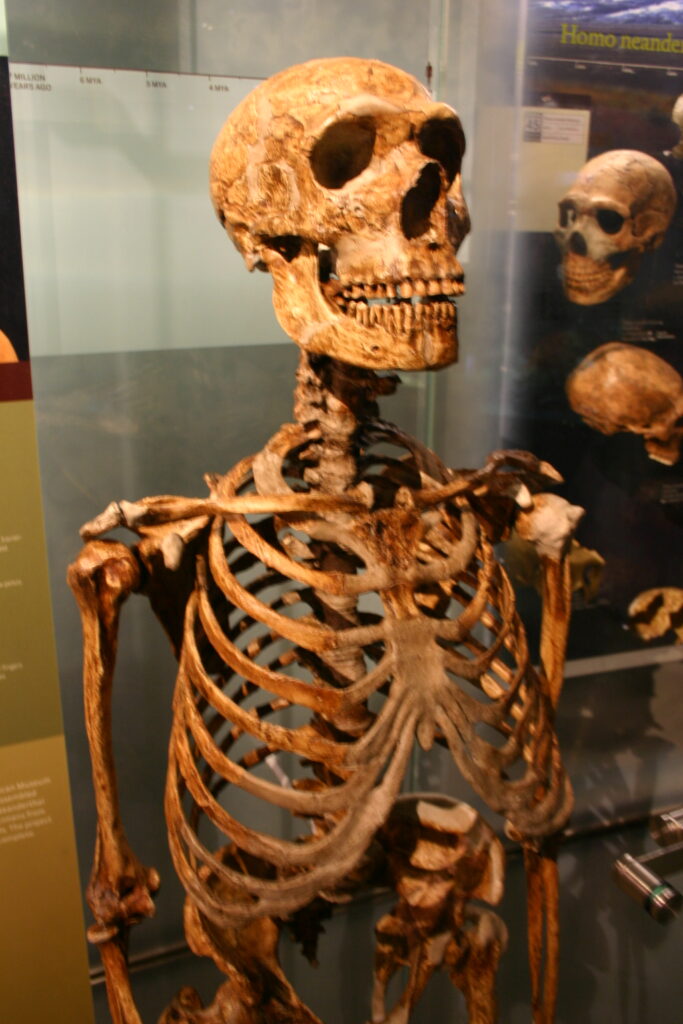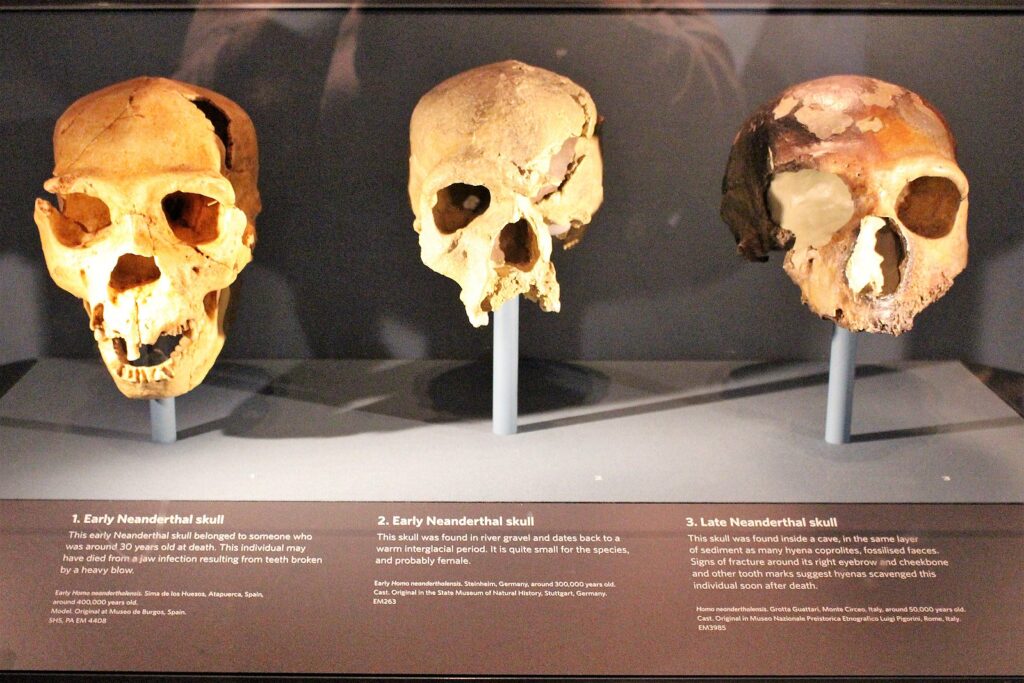Are you the kind of person who always wakes up before your alarm? Maybe you take your coffee and breakfast before the sun rises – or merrily skip into work while your coworkers are still getting out of bed.
If that sounds like you, you might have some Neanderthal ancestry to thank.
Now, everybody has a little Neanderthal DNA in them, but which genes vary from person to person.
In a new research study published in Genome Biology and Evolution, scientists claim that some genes inherited from Neanderthals are associated with being a “morning person.”
The researchers compared DNA extracted from ancient remains of Neanderthals to that of modern humans and found that some people shared clock-like genes with their Neanderthal relatives.
Folks with those Neanderthal clock genes tended to self-identify as being a morning person – going to bed and waking up roughly 25 minutes earlier than people without those Neanderthal clock genes.
Tony Capra, a geneticist at the University of California, San Francisco and lead author of the research paper calls this discovery a “striking trend” and one that likely has implications that go beyond making some people early risers.

When humans met Neanderthals
Modern humans arose in Africa roughly 300,000 years ago and over time began migrating north into modern day Europe and Asia.
When they got there, they found that two other archaic human-like species, Neanderthals and Denisovans, were already living on the continent. Those three species were all so closely related that they interbred with each other, sharing their genetic information.
Eventually, Neanderthals and Denisovans would go extinct thanks to a hundred-thousand year war with humans – but their memory lives on in the form of genes passed into the human species.
Today, people of Eurasian descent share about two percent of their DNA with their Neanderthal and Denisovan relatives, which contributes to some diseases and beneficial traits.
But why would Neanderthal (and Denisovan) ancestry make somebody a morning person?
Clock genes in Neanderthals let them adapt to varying day length
Capra and his colleagues think that it all has to do with sunlight.
The earliest humans living in Africa got about 12 hours of sunlight a day year-round because they were living close to the equator. On the other hand, the Neanderthals and Denisovans living further north would get more sunlight in the summer and less in the winter.
In response to that varying day length, Capra believes that Neanderthals and Denisovans had to evolve a more flexible circadian clock, allowing them to adapt to “changing seasonal light patterns.”
So when humans, Neanderthals, and Denisovans all interbred, those more flexible clock genes got passed on to some humans, helping some folks get up a little earlier than others.
And in a society where people often start work at 8:30 in the morning, that’s pretty advantageous.
Featured Image Caption: Homo Neanderthalensis by Emőke Dénes via Wikimedia Commons. Licensed under CC-BY-SA 4.0 DEED.
